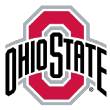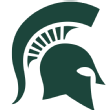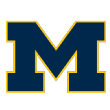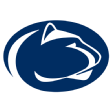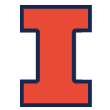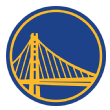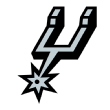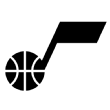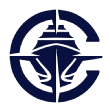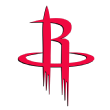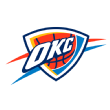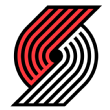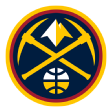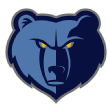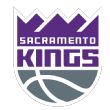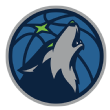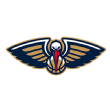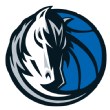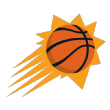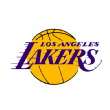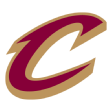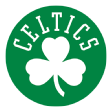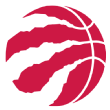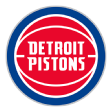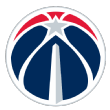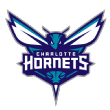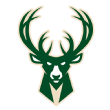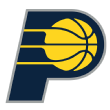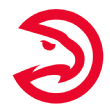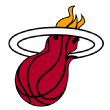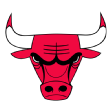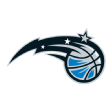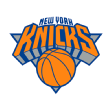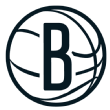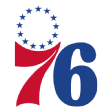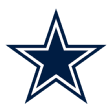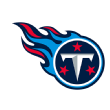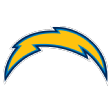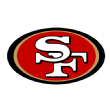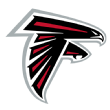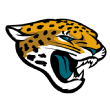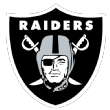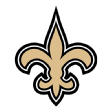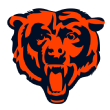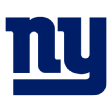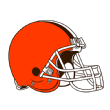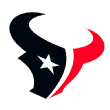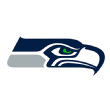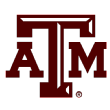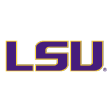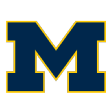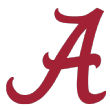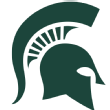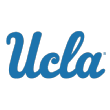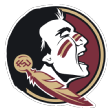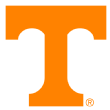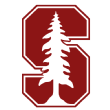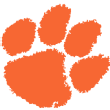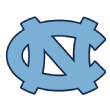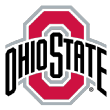5-on-5 predictions: How many young stars do the Lakers have?
Are D'Angelo Russell, Julius Randle and Brandon Ingram future stars? Are the Lakers headed in the right direction? Which trades should they make?
Our NBA Insiders preview Los Angeles' 2016-17 season.
1. How many future stars do the Lakers have?
Amin Elhassan, ESPN Insider: 1.5, but don't ask me who. The Lakers have gone about their rebuild in the correct fashion by collecting a variety of talented players who perform different functions; the hard part is figuring out which gamble will pay off. Realistically,
Brandon Ingram and
D'Angelo Russell are the two with the highest upsides among them.
Projections
How will the Los Angeles Lakers do this year? Here are our projections using ESPN's real plus-minus and Summer Forecast.
RPM
West standing: No. 15
Wins: 24.6
Summer Forecast
West standing: No. 15
Record: 25-57
Jeremias Engelmann, ESPN Insider: 1.5. I'm not very high on
Julius Randle, whose game reminds me too much of former No. 1 pick
Anthony Bennett. I think D'Angelo Russell and Brandon Ingram can develop into stars, but it's not a given that both do.
Jordan Clarkson and
Larry Nance Jr. can develop into decent rotation players, but probably not into stars.
Baxter Holmes, ESPN.com: Two: Russell and Ingram. The Lakers said Russell possessed "superstar" potential after drafting him in 2015, and he showed flashes last season and even more in summer league and preseason. With former coach Byron Scott gone, and without the restrictions of a Kobe Bryant farewell tour, this should be a breakout season for Russell. Ingram needs a few years to develop physically, but his skill set, size, athleticism and talent are all promising. He's also only 19.
Bradford Doolittle, ESPN Insider: 1.5. I think Russell will get there. He looks much improved during preseason, and if he establishes himself as L.A.'s top offensive option, he's on his way. The 1/2 is for Brandon Ingram. There is nothing I've seen that trumps his pre-draft projections, but he just looks so raw right now. He should be really good, but there's a lot that could go wrong, too.
Kevin Pelton, ESPN Insider: I'd put the line at 1.5. A strong preseason is the latest indicator that Russell is likely to become an All-Star-caliber player, leaving the Lakers needing one other player to come along. Clarkson, Randle and Nance are long shots to reach that level, in my opinion, but No. 2 pick Ingram has a reasonable shot at getting there.
2. Your take on the signings of Timofey Mozgov and Luol Deng?
Holmes: The Lakers needed some adults in the room to quell immaturity issues surrounding a young core, and they needed a respectable big, so they at least checked off a couple of boxes. Each player came at a cost, but so does everyone these days. That said, did the Lakers need to give them four-year deals? That part makes me scratch my head.
Elhassan: I think after the Lakers got done with their signings -- including re-upping Jordan Clarkson at a very reasonable $12.5 million per year -- we all took a step back and said that had the signings gone in a different order for the same amounts, there would be considerably less outrage.
But the fact that the Lakers really led off league-wide free agency with a massive contract for Mozgov -- a big guy with a history of knee issues who barely played during the second half of the season -- made their offseason seem a lot more egregious, especially when many consider the Mozgov number to have set the market for the deals that happened across the league in the hours thereafter.
Doolittle: As has been written many times, the Lakers jumped the gun on throwing that contact at Mozgov so soon. After the way he played last season, it's in doubt whether he's even a starting-quality center in the NBA.
Deng is as good a locker room guy as there is; he'll hold the kids accountable and set a good example. I think that's important. I'm much more confused as to why Deng would want the Lakers than why they'd want him.
Engelmann: Not a fan. I can see why Lakers management figured that more hard tanking doesn't make sense: They owe either their 2017 or 2018 first-rounder to the 76ers. (The '17 pick is top-three-protected.) Still, Mozgov probably would have been happy with half the money, while Deng might be taking minutes away from Ingram, as they play the same position.
Pelton: Too much money and way too many years to players who are too old. The Lakers sacrificed their salary-cap flexibility for two veterans who are unlikely to be starters when their young players get to the point where the team can compete for a playoff spot.
3. What is the biggest issue facing the Lakers this season?
Elhassan: Trying to figure out who is a keeper. Inevitably, with so many young players trying to find their way on different development curves, there can be a lot of noise masking what are the best bets to go with moving forward.
Engelmann: Probably inexperience. At some point, they might start three players age 21 and younger in Ingram, Russell and Randle. Ingram, who is 190 pounds, will have to put on a significant amount of weight, while everyone who was there last season will to adjust to the fact that their usage will rise with Kobe gone.
Doolittle: With Russell, Ingram, Randle and Nance on board, the Lakers have a group that should be around for a while, with other lottery additions on the way. This season is all about getting those guys acclimated to coach Luke Walton's system and determining whether any of them aren't going to work in it.
Holmes: Walton had it great as an assistant coach and interim head coach in Golden State -- Hall of Fame talent, picture-perfect culture, front-office/ownership stability and historic success. He has none of that in L.A., where he's the youngest head coach in the league.
He'll receive a grace period because he is a former Laker and is not Byron Scott, but to make people believe that he's the right man to help the Lakers emerge from rebuilding any time soon, Walton needs to show signs this season that he can create an improved on-court product this season.
Pelton: Sorting out the young talent, specifically at power forward. Because of where he was drafted and his superficially strong per-game stats, Randle has been anointed the future at the position, but I'm not sure his skills will work well as the third or fourth option on the kind of team the Lakers eventually hope to build.
4. What trade makes the most sense for the Lakers?
Holmes: At the moment, I'm a big believer that the Lakers need to focus on developing their young core -- rich with many lottery draft picks and possibly another one next summer -- into whatever it might be. Perhaps stars emerge, and they could trade for stars in return. Who knows?
But right now, the Lakers are short on assets, so they need to lock the doors and work with what they have in-house, a strategy that many around the league strongly suggest.
Doolittle: Get Lou Williams out of there. Seriously. Especially now that Clarkson is coming off the bench and seems to have embraced that third-guard role. Williams can help a lot of good teams. He's simply redundant on this one and serves no good purpose.
Elhassan: Outside of cosmetic deals to shed a
Nick Young or a Lou Williams, I would definitely stand pat. There really is no rush to try to rapidly improve this roster for short-term success. Let the cake bake at 400 degrees for 40 minutes; don't try to ratchet it up to 800 degrees to cut the time in half.
Engelmann: I'd try to trade Nick Young for locker room reasons, although it'll probably be hard to get good value in return. I'm anything but a fan of Randle, who scored poorly in statistical draft models and now rates badly in various metrics since he entered the NBA (Real Plus-Minus: -4.3), so I'd try to trade to him to a team that still thinks highly of him.
Pelton: Getting some value for Lou Williams at the trade deadline from a team in need of shot creation, such as the
Boston Celtics -- even a second-round pick -- would be good for the Lakers, as Williams has been rendered a bit redundant by the development of Clarkson and Russell.
5. What is the biggest source of hope for the Lakers?
Elhassan: The youth movement. Maybe none of them turn into elite stars, but several of them look like they can be solid high-level starters in this league, That, combined with a young coach who also has a world of potential, gives the organization a lot to look forward to.
Holmes: Walton offers hope. Russell, Ingram, Randle, Clarkson and Nance offer hope, too. But uncertainty looms with a potential front-office shakeup next summer, when the timeline on co-owner and executive Jim Buss runs out. If the Lakers can show progress this season and maybe win 25 games, then their future is a little brighter after being dark for recent years. Baby steps, as they say.
Engelmann: That Russell and Ingram take the development path that is expected of No. 2 picks. It will undoubtedly take some time, especially in Ingram's case. But if things go well, they might have their own version of the (former) Russell Westbrook-Kevin Durant tandem on their roster.
Doolittle: These days, it can be hard to get a high-quality coach to invest his time in a developing team that is a long way off. The proven ones can usually find more veteran-heavy groups that are likely to get into the playoffs.
Walton may not be proven, but he seems as close to a sure thing as a coaching prospect could be. He's a Laker at his core, and now it feels like this new era is finally starting to develop an identity.
Pelton: If Russell develops as his talent suggests, the Lakers become an attractive destination for free agents, provided they can maintain the financial discipline to keep a max slot or two open as some of their young players start to get more expensive.
